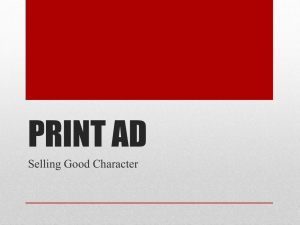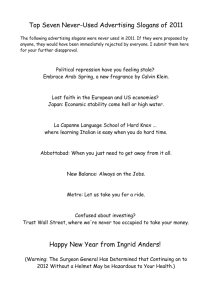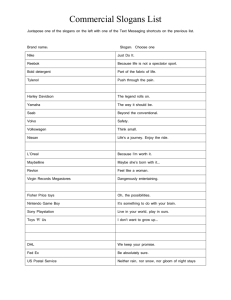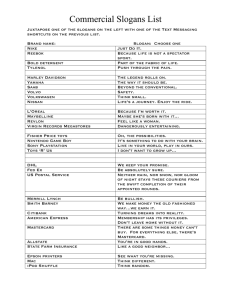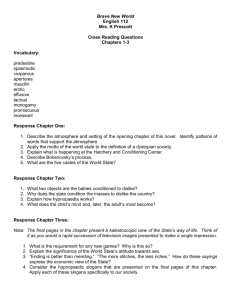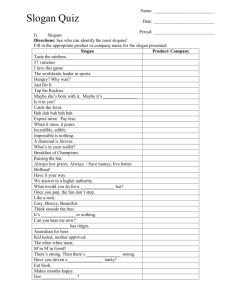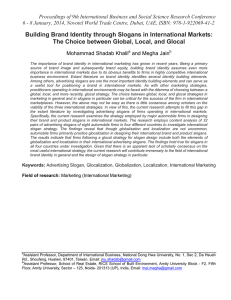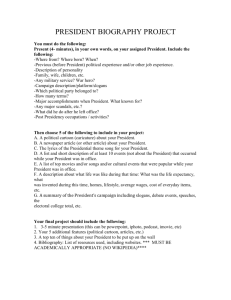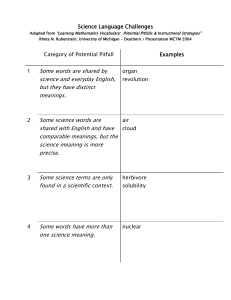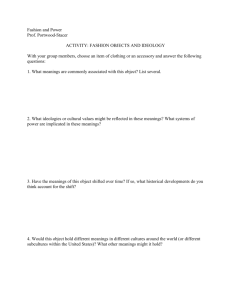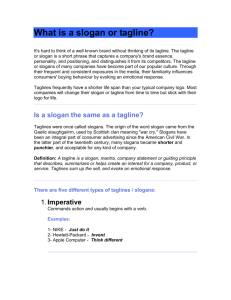even if you don`t get the joke
advertisement
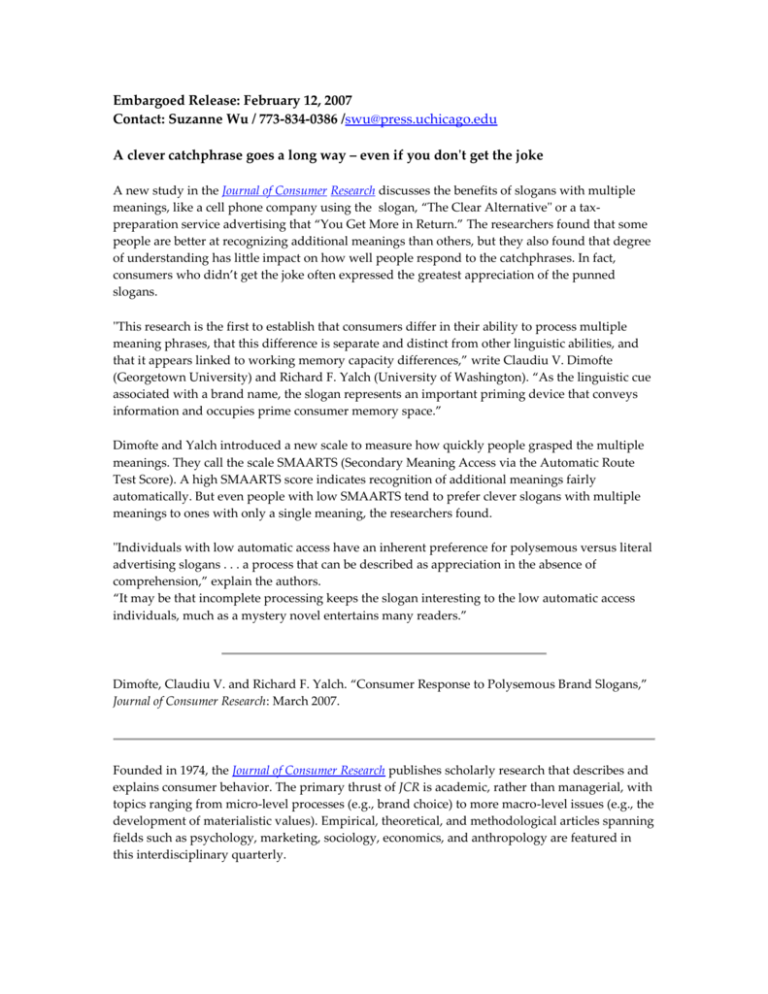
Embargoed Release: February 12, 2007 Contact: Suzanne Wu / 773-834-0386 /swu@press.uchicago.edu A clever catchphrase goes a long way – even if you don't get the joke A new study in the Journal of Consumer Research discusses the benefits of slogans with multiple meanings, like a cell phone company using the slogan, “The Clear Alternative" or a taxpreparation service advertising that “You Get More in Return.” The researchers found that some people are better at recognizing additional meanings than others, but they also found that degree of understanding has little impact on how well people respond to the catchphrases. In fact, consumers who didn’t get the joke often expressed the greatest appreciation of the punned slogans. "This research is the first to establish that consumers differ in their ability to process multiple meaning phrases, that this difference is separate and distinct from other linguistic abilities, and that it appears linked to working memory capacity differences,” write Claudiu V. Dimofte (Georgetown University) and Richard F. Yalch (University of Washington). “As the linguistic cue associated with a brand name, the slogan represents an important priming device that conveys information and occupies prime consumer memory space.” Dimofte and Yalch introduced a new scale to measure how quickly people grasped the multiple meanings. They call the scale SMAARTS (Secondary Meaning Access via the Automatic Route Test Score). A high SMAARTS score indicates recognition of additional meanings fairly automatically. But even people with low SMAARTS tend to prefer clever slogans with multiple meanings to ones with only a single meaning, the researchers found. "Individuals with low automatic access have an inherent preference for polysemous versus literal advertising slogans . . . a process that can be described as appreciation in the absence of comprehension,” explain the authors. “It may be that incomplete processing keeps the slogan interesting to the low automatic access individuals, much as a mystery novel entertains many readers.” Dimofte, Claudiu V. and Richard F. Yalch. “Consumer Response to Polysemous Brand Slogans,” Journal of Consumer Research: March 2007. Founded in 1974, the Journal of Consumer Research publishes scholarly research that describes and explains consumer behavior. The primary thrust of JCR is academic, rather than managerial, with topics ranging from micro-level processes (e.g., brand choice) to more macro-level issues (e.g., the development of materialistic values). Empirical, theoretical, and methodological articles spanning fields such as psychology, marketing, sociology, economics, and anthropology are featured in this interdisciplinary quarterly.
